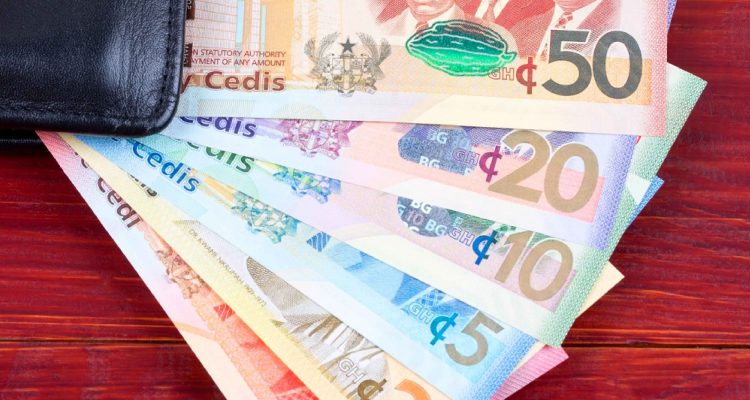Ghana has had its own currency, the Ghanaian cedi for over 50 years. Currency having undergone a “mutation” in 2007 (1 new cedi worth 10,000 old cedis). On the other hand, in 2014 it experienced a fall, not due to the new policy of the US Federal Reserve, but quite simply to Ghana’s multiple deficits. Indeed, from 2011 to 2013, Ghana experienced a budget deficit ranging from 5.5% to 10.2% of its GDP. This is accompanied by an increase in spending (25% to 31% of the national wealth). The cedi has seen many setbacks in recent years but since early 2020, it has a form that could be described as Olympic.
Let’s review part of the journey of this currency.
Depreciation of the Ghanaian cedi …
At the start of 2019, the cedi depreciates against the US dollar and the British pound. Thus, the US dollar, which was obtained in exchange for 4 cedis, is now obtained using 5.51 cedis in February 2019. Insurgency everywhere. The Central Bank of Ghana (BoG) despite the depreciation of the currency, succeeds in reducing the deficit from 9.3% to 3.9% (remember, the budget deficit is a big problem for Ghana). Some analysts propose an injection of currencies into the market in order to regulate the exchange rate. Even President Nana Akufo-Ado made a statement on February 27, 2019 in relation to this and said he was not only upset but also anxious about the situation in which the Ghanaian business community finds itself. It is recalled that this is a long-term decline, in that in 2009, 1,000 Ghanaian cedis were worth US $ 840. Very different situation at that time (1,000 Ghanaian cedis are worth at most 224 US dollars). Moreover, when we take a look at the past, the depreciation of the Ghanaian cedi will crescendo:
- First half of 2017: Ghanaian cedi depreciates by 3.3%
- First half of 2018: Ghanaian cedi depreciation of 5.3%
That is an increase of 2% in one year. According to experts, the cause of this depreciation of the Ghanaian currency was to be looked at not in the United States but rather in Ghana. In 2014, it was believed that Ghana, like Turkey, was affected as by the new monetary policy of the United States Federal Reserve (FED), less generous than in the past. This was just a consequence of the Ghanaian budget deficit.
Rise of the cedi in 2020 …
After 25 long consecutive years of depreciation, the most recent of which is equivalent to a depreciation of 13%, the Ghanaian cedi is back in force at the beginning of 2020. Indeed, in its report in early February 2020, the American financial group Bloomberg reveals that the Ghanaian cedi is the best performing currency against the US dollar. That is an increase of 3.9%. Study on more than 140 currencies. This progression is the result of several factors:
- Nana Yaa Fakye (Director of Treasury at the Central Bank of Ghana) grants this decrease in demand for foreign currencies by Ghanaian importers. Decrease resulting from the impact of the health crisis linked to Covid-19 not only on travel (to China, the country’s main supplier), but also on trade.
- We should not also put aside the issuance of 3 billion euro bonds, aimed at the bailout of state coffers.
- Steve Opata (Head of Markets at the Central Bank of Ghana), for his part, highlights the new orientations of the BoG. Indeed, the latter had made the
decisionto put forward foreign exchange auctions in October 2019. Auctions that would bring in 715 million US dollars. Thus allowing a reduction intheshortage of the US dollar in the Ghanaian economy.
Prospects for abandoning the Ghanaian cedi for the Eco …
In December 2019, Ghana announced that it would soon join the eight West African countries (Burkina Faso, Guinea Bissau, Côte d’Ivoire, Mali, Niger, Senegal and Togo) engaged in the use of water. ‘Eco. In one of its statements, the Ghanaian government says it is ready to do its utmost to join the member states of the UEMOA (West African Economic and Monetary Union) in the use of the Eco for the elimination of trade and monetary barriers, reduction of transaction costs, etc.
Second largest cocoa producer in the world by the International Monetary Fund (IMF) in 2019, followed by this rise in the Ghanaian cedi of 3.9%; the sectors of agriculture and extractive industries not being left out. The rating agency Moody’s rating on Ghana’s economic outlook is thus revised. The “stable” remark on its economic outlook turns into “positive”, accompanied by a B3 rating. Given the positive health of the Ghanaian cedi, will Ghana continue its actions regarding the abandonment of its currency in favor of the Eco? Do you think the Cedi should be abandoned in favor of the Eco?


Leave a Reply